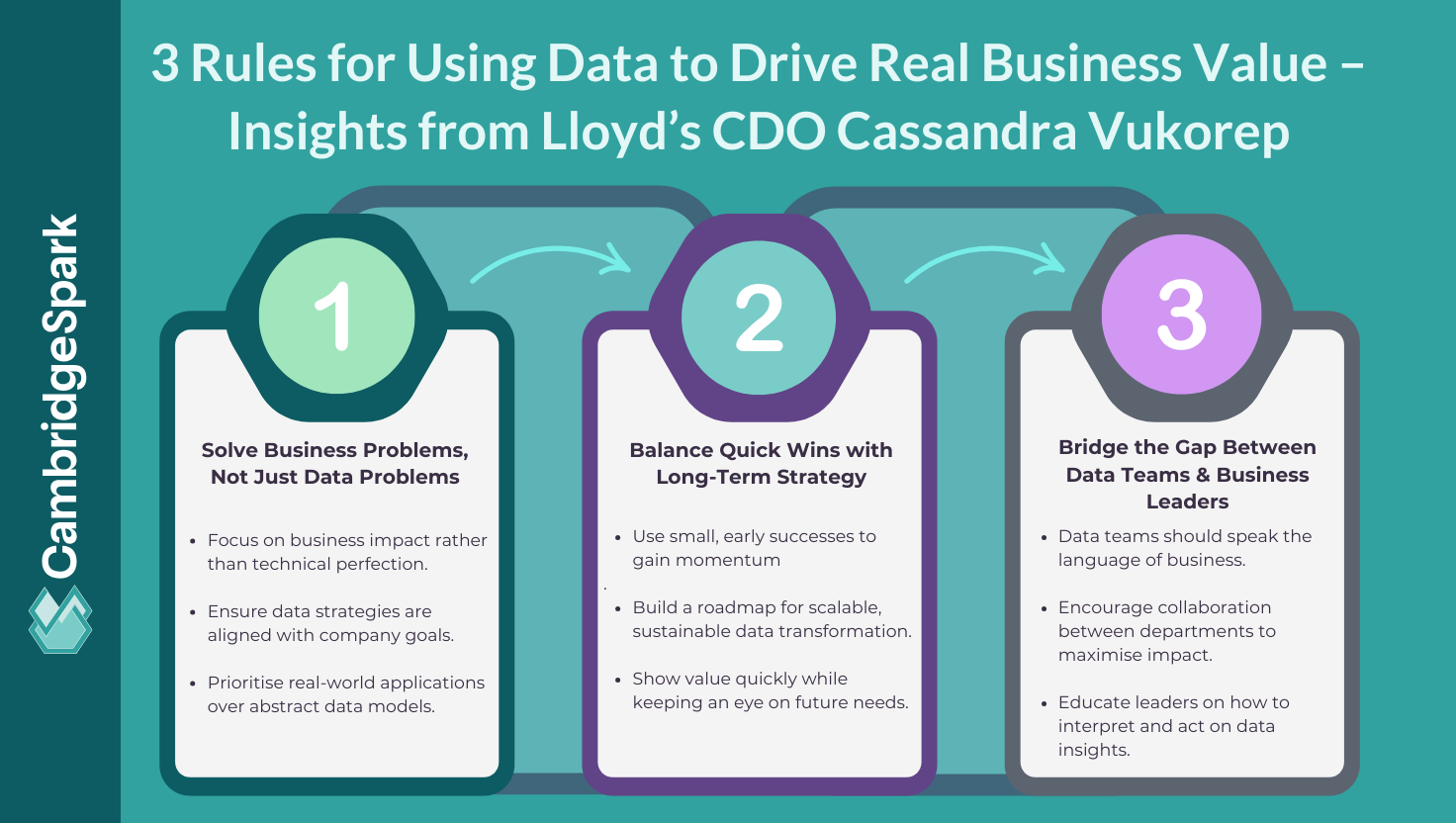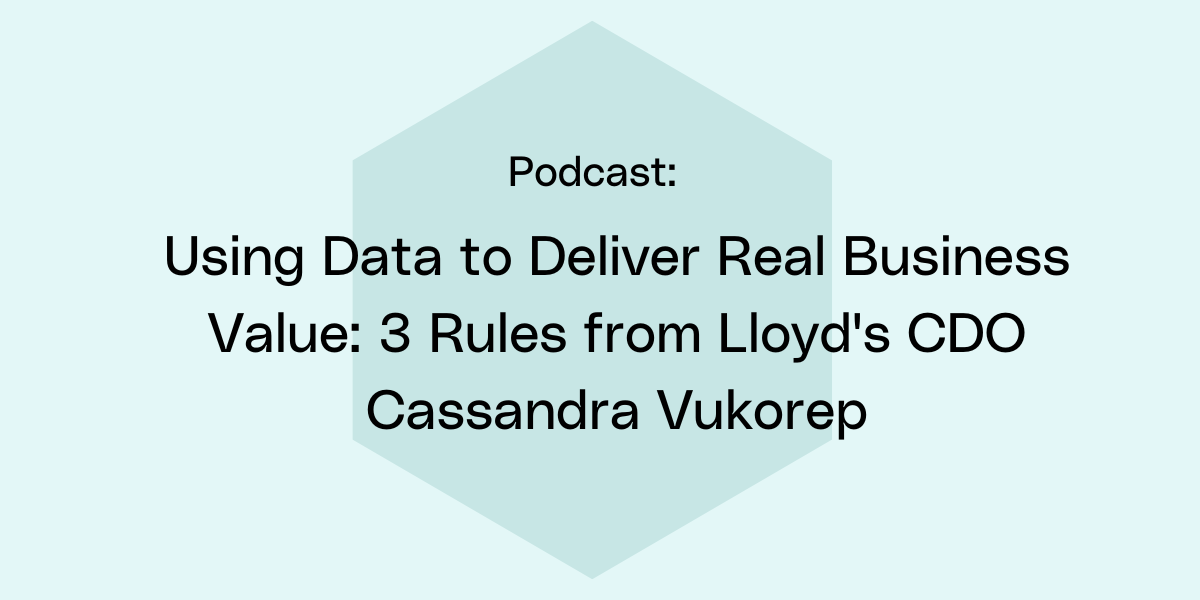Many businesses make the mistake of treating data as an afterthought rather than a core driver of business success. Follow these essential rules to unlock its true value.
The thing is, collecting or analysing data without a clear goal won’t get you anywhere. The real value comes when data is directly tied to your business goals.
Cassandra Vukorep, Chief Data Officer at Lloyd’s, recently joined us on the Data & AI Mastery podcast to share her approach to data. She said, “There's no such thing as a data project. They're all business projects. Because if it doesn't derive business value, there's no point in doing it.”
Take customer segmentation as an example. If all you’re doing is collecting information with no purpose in mind, it’s meaningless. But when you link that data to a clear business objective—say, using those insights to improve sales through personalised marketing—that’s when you start seeing real impact.
So, how can you make sure that your data projects deliver on that promise? Here are three things you need to make it happen:

Rule #1 Deliver Business Value Incrementally
You want to see your data work for you. According to Cassandra, an incremental approach is the best way to achieve this. That means solving real problems in smaller, manageable steps rather than committing to massive, year-long projects with uncertain outcomes.
By demonstrating quick wins and adjusting along the way, you create momentum and ensure that each step directly contributes to the business goals.
Cassandra explains it this way: “It's about not reinventing the world. It's about incremental value and delivering incremental value that's driven on a strategic point. So, if you have foundations delay in place, don't build the foundations and then find the use cases. Build the foundations as you have the use cases. Right now, in anything, you need some sort of enterprise architecture, data architecture; you need to have that north star that you're heading towards that you're building on.”
Rule #2 Adopt Data Standards
The word standardisation gets a bad rep, but if you think about it, standards make our lives easier. The same goes for data. When companies have consistent data standards, everything runs smoother.
Cassandra paints a perfect picture of this:
"If we think of how we use standards every single day in our lives, So, think about the plug for your Android. You can go to your friend's house. ‘Ah, my phone's dying. Do you have a charger?’ We all have the plug for that. Did you know the plug for a tea kettle, that size is a standard size across the world? So, they are all standards that we expect every single day. But then you start talking about data standards, and people are like, ‘Whoa, whoa, whoa!’ It's like, no, think about the standards that run our lives and have made our lives a lot easier.”
So, build data standards to avoid chaos and ensure consistency across teams. This will make it much easier to use and analyse your data. For example, consider standardised reporting or formats across departments, depending on how your business operates.
Rule #3 Prioritise Interoperability
Building systems that don’t communicate with each other only creates bottlenecks and slows everything down. Cassandra suggests prioritising interoperability—designing systems and tools that seamlessly connect without extra steps.
She says, "It's building something so they can change their mind, they can be fast, they can be modular, they can move on. But everything just seamlessly works together; you don't have to translate it; you don't have to handhold it.”
You want your data to be flexible and adaptable without disrupting the workflow. This agility lets businesses change direction quickly, adapt to new market needs, and grow without constantly needing to redo or rebuild infrastructure.
Unlock the Full Potential of Your Data
Data can be your greatest asset, or it can just become more noise without the right context.
As Cassandra nicely puts it, "You can have the best technology idea in the entire world. If you can't sell it, it's useless. So you have to have value—this true business value attached to the front of anything that you do. Not data for data or tech for tech because what's the purpose?”
So, to make sure your data projects deliver business value, keep it simple with the three rules from above: start small and show results, set up solid data standards, and make sure everything works together smoothly.
Remember, the key is to make data work for your business, not the other way around.
Ready to take your data game to the next level?
Explore how our expert technical programs can help upskill your workforce, accelerate your data transformation, and deliver measurable impact where it matters most.

-1.png)

